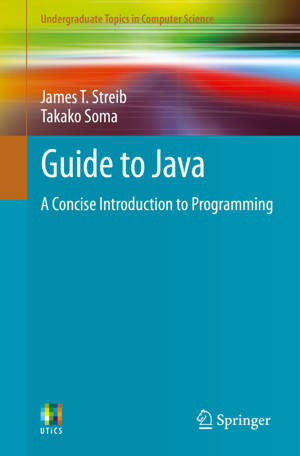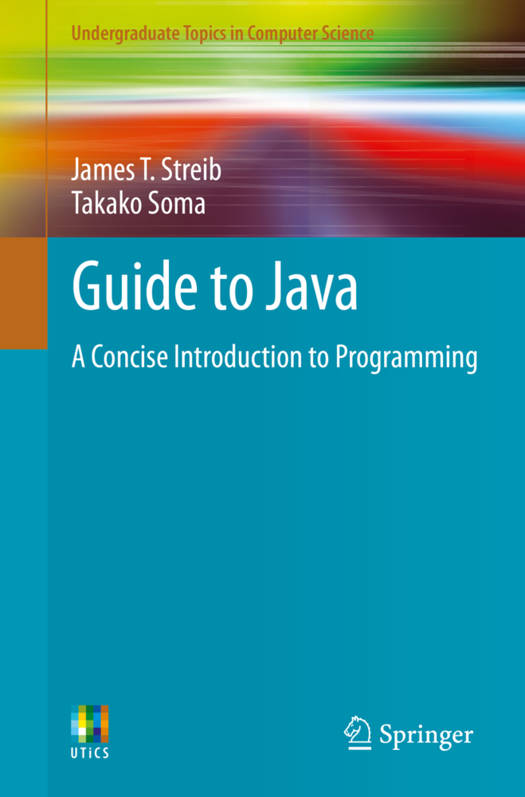
- Retrait gratuit dans votre magasin Club
- 7.000.000 titres dans notre catalogue
- Payer en toute sécurité
- Toujours un magasin près de chez vous
- Retrait gratuit dans votre magasin Club
- 7.000.0000 titres dans notre catalogue
- Payer en toute sécurité
- Toujours un magasin près de chez vous
Description
Seeking to learn quickly how to program in Java without prior experience? This Guide to Java presents a focused and accessible primer on the fundamentals of Java programming, with extensive use of illustrative examples and hands-on exercises.
Addressing the need to acquire a good working model of objects in order to avoid possible misconceptions, the text introduces the core concepts of object-oriented programming at an early stage, supported by the use of contour diagrams. Each chapter has one or more complete programs to illustrate the various ideas presented, and to help readers learn how to write programs on their own. Chapter summaries and practical exercises are also included to help the reader to review their progress and practice their skills.
Topics and features: provides an introduction to variables, input/output, and arithmetic operations; describes objects and contour diagrams, explains selection structures, and demonstrates how iteration structures work; discusses object-oriented concepts such as overloading and classes methods, and introduces string variables and processing; illustrates arrays and array processing, and examines recursion; explores inheritance and polymorphism, and investigates elementary files; presents a primer on graphical input/output, discusses elementary exception processing, and presents the basics of Javadoc; includes exercises at the end of each chapter, with selected answers in an appendix, and a glossary of key terms; provides additional supplementary information at an associated website.
This concise and easy-to-follow textbook/guide is ideal for students in an introductory programming course. It is also suitable as a self-study guide for both practitioners and academics.
Spécifications
Parties prenantes
- Auteur(s) :
- Editeur:
Contenu
- Nombre de pages :
- 358
- Langue:
- Anglais
- Collection :
Caractéristiques
- EAN:
- 9781447163169
- Date de parution :
- 11-03-14
- Format:
- Livre broché
- Format numérique:
- Trade paperback (VS)
- Dimensions :
- 156 mm x 234 mm
- Poids :
- 521 g

Les avis
Nous publions uniquement les avis qui respectent les conditions requises. Consultez nos conditions pour les avis.






